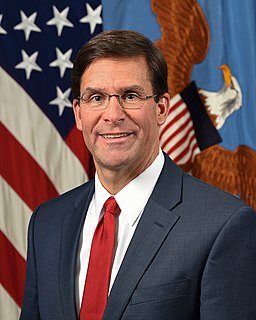A Quote by Paul Allen
I would go in the university stacks and pull out books like 'Jane's Fighting Aircraft of World War II' when I was 12 or something, and I'd spend hours reading about the engines in some of those planes.
Related Quotes
At the beginning of World War II the U.S. had a mere 600 or so first-class fighting aircraft. We rapidly overcame this short supply by turning out more than 90,000 planes a year. The question at the start of World War II was: Do we have enough funds to produce the required implements of war? The answer was No, we did not have enough money, nor did we have enough gold; but we did have more than enough resources. It was the available resources that enabled the US to achieve the high production and efficiency required to win the war. Unfortunately this is only considered in times of war.
In an all-out nuclear war, more destructive power than in all of World War II would be unleashed every second during the long afternoon it would take for all the missiles and bombs to fall. A World War II every second-more people killed in the first few hours than all the wars of history put together. The survivors, if any, would live in despair amid the poisoned ruins of a civilization that had committed suicide.
I did not know much history when I became a bombardier in the U.S. Air Force in World War II. Only after the War did I see that we, like the Nazis, had committed atrocities... Hiroshima, Nagasaki, Dresden, my own bombing missions. And when I studied history after the War, I learned from reading on my own, not from my university classes, about the history of U.S. expansion and imperialism.
I think in many ways, the Spanish Civil War was the first battle of World War II. After all, where else in the world at this point did you have Americans in uniform who were being bombed by Nazi planes four years before the U.S. entered World War II? Hitler and Mussolini jumped in on the side of Francisco Franco and his Spanish nationalists, sent them vast amounts of military aid, airplanes, tanks - and Mussolini sent 80,000 ground troops as well - because they wanted a sympathetic ally in power. So I think it really was the opening act of World War II.
It's important to remember that World War II was experienced very much as a continuity in that sense. Most of World War II in most of Europe wasn't a war; it was an occupation. The war was at the beginning and the end, except in Germany and the Soviet Union, and even there really only at the end. So the rest of time it's an occupation, which in some ways was experienced as an extension of the interwar period. World War II was simply an extreme form, in a whole new key, of the disruption of normal life that began in 1914.
However, there is a fundamental difference between the issue related to Japan's history and our negotiations with China. What is it all about? The Japanese issue resulted from World War II and is stipulated in the international instruments on the outcomes of World War II, while our discussions on border issues with our Chinese counterparts have nothing to do with World War II or any other military conflicts. This is the first, or rather, I should say, the second point.



































